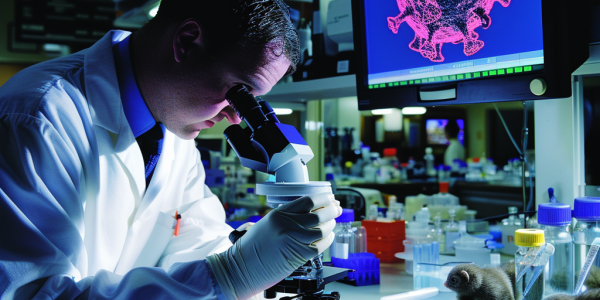Bajau Tribe: The Sea Nomads with Extraordinary Diving Genetics
Discover the remarkable diving abilities of the Bajau tribe, Indonesia’s sea nomads, who possess a unique genetic mutation enabling them to dive deeper and longer than average humans. Learn how their enlarged spleen and traditional techniques allow them to thrive in ocean depths, providing insights into human evolution and adaptability.
Revolutionary Gene-Editing Tool HACE Offers Unprecedented Precision in Genetic Research
A groundbreaking gene-editing tool, Helicase-Assisted Continuous Editing (HACE), offers scientists unparalleled precision in targeting genetic mutations. By combining helicase enzymes with CRISPR technology, HACE enables the introduction of specific mutations without disrupting the entire genome, revolutionizing research in gene function and disease mechanisms. Recent studies demonstrate HACE’s potential in identifying drug resistance mutations in cancer, paving the way for novel therapies and enhanced cancer treatment strategies.
NIH Study Reveals New Mechanism of Mutant RAS Genes in Cancer Growth
NIH researchers reveal new insights into mutant RAS genes and their role in tumor growth, highlighting a previously unknown mechanism that could enhance cancer treatment strategies. Published in Nature Cancer, the study shows how mutant RAS proteins contribute to cancer development by transporting nuclear proteins, suggesting broader implications for various cancers. This groundbreaking discovery may lead to more effective combination therapies for RAS-driven malignancies.
Study Highlights Lethal Transmissibility of Bovine H5N1 Influenza
A new study in Nature reveals the transmissibility and lethal potential of the bovine H5N1 influenza virus, huTX37-H5N1, highlighting significant public health concerns. Isolated from a farm worker, this strain can be transmitted between animals and poses a threat to humans, with findings indicating its ability to replicate in human cells. Researchers emphasize the need for enhanced surveillance and monitoring of H5N1 viruses amid ongoing outbreaks.
Cleveland Clinic and Cornell Unveil AI Tool PIONEER to Revolutionize Drug Discovery
Researchers from Cleveland Clinic and Cornell University have launched PIONEER, a groundbreaking AI tool that enhances the understanding of protein-protein interactions crucial for drug discovery. This innovative tool aims to streamline the identification of therapeutic targets, accelerating the development of effective treatments for cancer and other diseases. By integrating extensive genomic data and 3D protein structures, PIONEER represents a significant advancement in health informatics and personalized medicine.
Breakthrough Biologic Drug Targets Mutant HER2 Protein for Cancer Treatment
A groundbreaking study from NYU Langone Health has developed a new biologic drug targeting mutant HER2 proteins, promising effective cancer treatments with minimal side effects. This targeted therapy represents a significant advancement in oncology, paving the way for personalized medicine and improved patient outcomes.
Breakthrough Discovery on RNA’s Role in Cancer by University of Chicago Researchers
Researchers at the University of Chicago have made a significant discovery about RNA’s role in cancer, particularly related to TET2 mutations. This groundbreaking study, published in Nature, reveals how RNA influences DNA packaging and gene regulation, offering potential new treatment avenues for various cancers. Understanding RNA’s function could transform therapeutic strategies and improve patient outcomes.
HiDEF-seq: A Revolutionary Advancement in DNA Sequencing
Discover the groundbreaking HiDEF-seq technique developed by NYU Langone Health, which offers unprecedented precision in detecting early DNA mutations. This innovative DNA sequencing method enhances our understanding of genetic disorders and could revolutionize disease prevention and treatment, particularly in cancer research.
Study Reveals Detrimental Effects of Space Travel on Human Body
Recent study published in Nature Communications reveals detrimental effects of space travel on the human body, including immune system dysregulation, muscle changes, and increased cytokine production. Research based on data from SpaceX Inspiration4 mission highlights complex impact of spaceflight on human health, with potential biological advantages for women. Further investigation needed to understand long-term implications.
Genetic Mechanisms of Immune Evasion in Cancer Cells Revealed
Recent research published in Nature Genetics delves into the genetic mechanisms driving immune evasion in cancer cells, particularly focusing on repetitive homopolymer sequences in mismatch repair (MMR) genes. The study highlights how somatic mutations in MMR-deficient cancers contribute to tumor immunogenicity and the role of genetic ON/OFF switches in cancer evolution. By elucidating these processes, researchers aim to develop targeted therapies to enhance the immune response against cancer cells.










